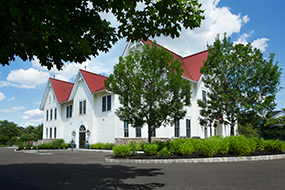Just as absence of loss of consciousness does not preclude a diagnosis by a medical professional of concussion, similarly, the affects of a brain injury on any one individual have been understood to not fit any particular time frame of recovery. As noted by Dr. Muriel Lezak in Neuropsychological Assessment, 2nd Ed. (1983), page 17: “The behavioral repercussions of brain damage vary with the nature, extent, location, and duration of the lesion; with the age, sex, physical condition and psychosocial background and status of the patient; and with individual neuroanatomical and physiological differences. Not only is the pattern of deficits displayed by one brain damaged person likely to differ from the pattern displayed by another with damage involving anatomically and functionally different areas, but impairment patterns of patients with similar lesions may also differ.”
Armed with this information, the trial lawyer fighting for the victim of a concussion without loss of consciousness but with lasting affects, can adequately present testimony from your expert witnesses, cross-examine the defense expert witness and argue to your fact finder that the absence of loss of consciousness is not a major determining fact to predict what type of cognitive impairments will result and/or their duration. Therefore, it is unfair to any patient to assume that simply because someone has not lost consciousness as a result of trauma that complete recovery should be expected within a finite period of time.
Since NFL Football and our other major professional sports leagues as well as state governments recognize that each individual who suffers a concussion must be evaluated individually and be allowed to return to play only after that individual recovers from their symptoms and that no judgment is to be made as to when such athlete should typically recover, we, as trial lawyers should ensure that any fact finder understands that there should be no expected time for recovery for any patient who suffers a head injury.
If you have read my prior blog posts about concussion and it’s after effects, you understand that the significant conclusions that we can reach is that loss of consciousness is not a necessary to cause a concussion, that the recovery from a concussion is due to many factors and not simply whether or not the individual suffered a loss of consciousness and that NFL Football, Major League Baseball and our state governments are making sure that athletes are not allowed to return to the field of play until after all their concussion symptoms have resolved. In short, each brain is different and each person’s outcome is similarly varied.
When secondary gain is involved, however, our clients’ complaints of ongoing problems are greatly scrutinized. Explaining that medical science accepts that such post-concussion symptoms can last and long time and may even be permanent at least allows me to put my clients back into a playing field that I can help control, the battle related to credibility.
But how do I show that you are credible. In short, four ways:
-
I need to know everything there is to know about your past medical, psychiatric/psychological, family, work and education history. As you know from previous posts, your age, sex, previous medical condition, work history, incidents of prior head injury or depression and educational level all play a factor in how you, individually, will recover from a mild traumatic brain injury.
-
I need to understand everything that made up your life before the injury causing event. What activities did you engage in each day? What were your hobbies? What was your attitude about life? What was the quality of your friendships and family relations? What kind of worker were you? What kind of father/mother? What kind of student? What did you consider to be strengths/weaknesses? What dreams/plans did you have? I then need to contrast those aspects of your life as described before the injury inducing event to answers to those same questions after the event.
-
I need to present witnesses that will explain the differences in your life before and after the injury inducing event. I need to speak with co-workers, family members, friends, and other persons with whom you shared the life that was yours before the injury. I need to present those persons to give light and breath to the changes in your life caused by the injury.
-
Lastly, I need to work with an expert, who ideally is your treating physician, who can give the opinion that each of the changes in your life described by these witnesses was caused by the injury.
In my next blog post, I will describe some of the diagnostic testing being used to help your treating physicians understand what injury you have sustained and how you can treat it.

